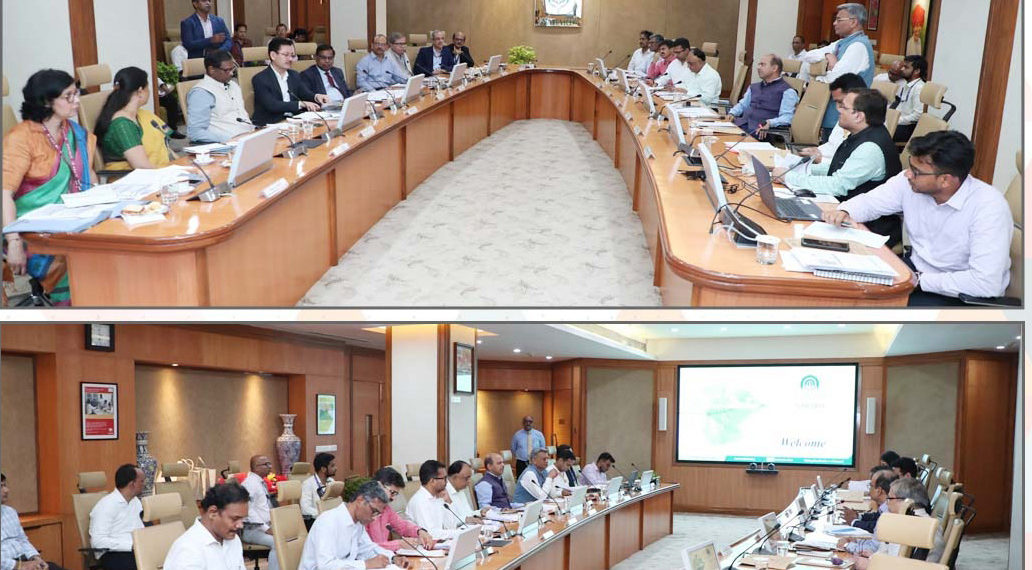Union Ministry of Cooperation Secretary Ashish Bhutani chaired a series of meetings organized at Mumbai based Nabard Head office last week for discussing issues related to cooperative banking and the initiatives undertaken by the MoC.
Nabard Chairman Shaji KV, MSC Bank Administrator Vidyadhar Anaskar, Maharashtra Additional Chief Secretary Anoop Kumar, Maharashtra Cooperative Department senior officials and others were present.
During the meeting, the opening of new DCCBs to cover each district of 19 states in the country, issue of Rupay Credit Card by Rural Cooperative Banks, implementation of the World’s Largest Grain Storage Plan in the Cooperative Sector and others were discussed.
While talking to the Indian Cooperative correspondent, Chairman of the Administrative Board of MSC Bank Vidyadhar Anaskar said, “The meeting was fruitful and many issues came up for discussion to strengthen not only the Maharashtra State Cooperative Movement but also that of the country”, he said.
“The discussion about the implementation of the world’s largest grain storage in the cooperative sector also took place, among other issues. I told them that the Nashik DCCBs have shortlisted 52 PACS for creating godowns of higher capacities but due to negative financial performance they are not able to facilitate finance.
“It was decided in the meeting that the finance would be facilitated directly by the MSC Bank to these PACS for creating godowns”, said Anaskar on the phone.
He further said, the MSC Bank is taking lead for providing State-of-the-Art IT operations and support services to the DCCBs. Sindhudurg DCC Bank is the first DCC Bank among DCC Banks of Maharashtra to be affiliated with Cyber Security Operation Centre (C-SOC) of the MSC Bank. Soon other DCC banks and UCBs will also become affiliated to the Cyber Security Operation Centre (C-SOC) of the MSC Bank, he noted.
The deliberations on inclusion of DCCBs in the second schedule of RBI Act,1934 were also held but one of the participants said on technical grounds it is not possible to include DCCBs in the second schedule of the RBI Act, 1934 because DCCBs work under the umbrella of state cooperative banks and already StCBs are enjoying the ‘Schedule Status’. he remarked.
During the meeting, it was informed that RBI was requested by NABARD to consider permitting all eligible Schedule State Cooperative Banks fulfilling the Financially Sound and Well Managed (FSWM) norms of RBI, to issue credit cards to their customers.













































